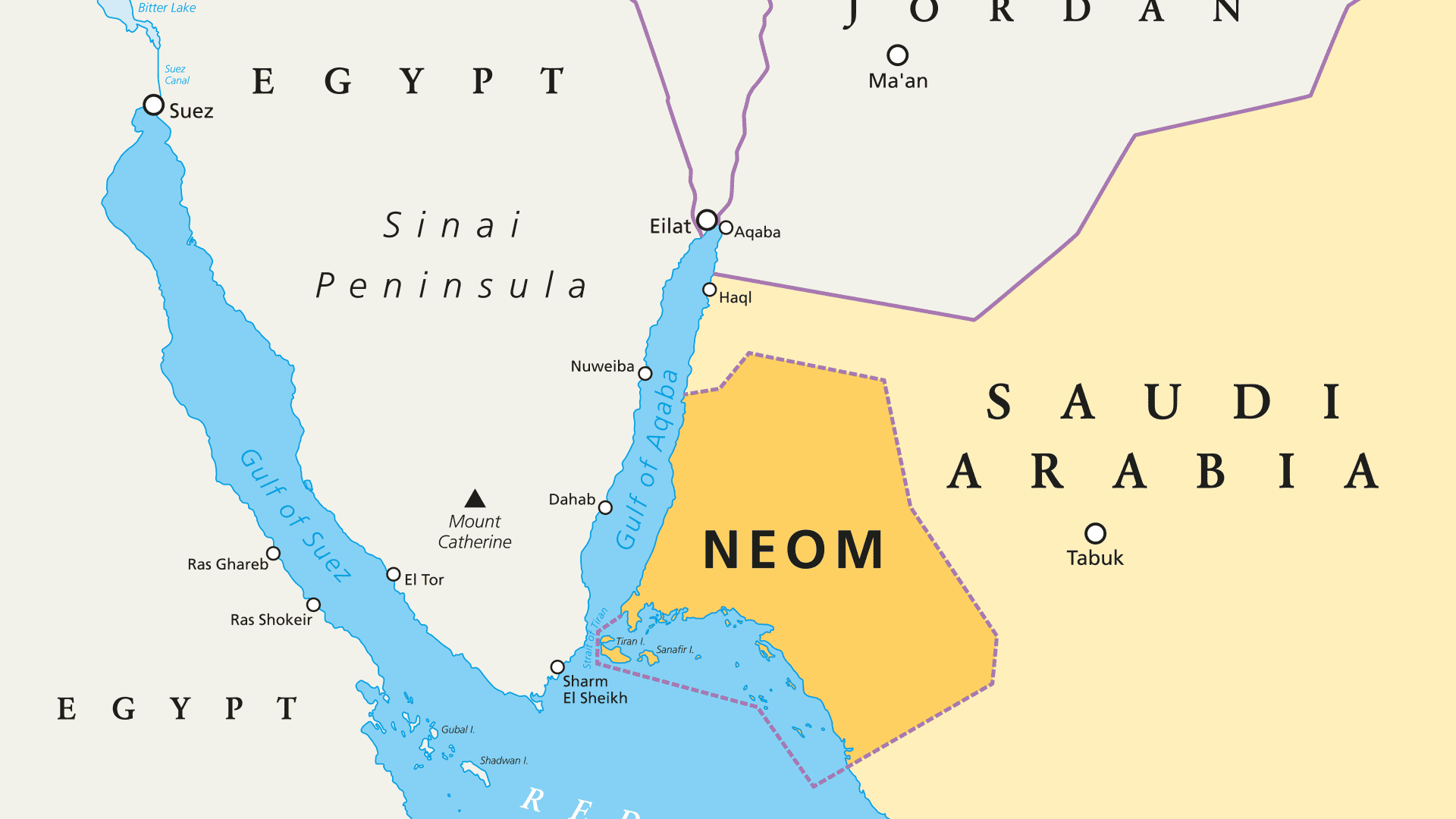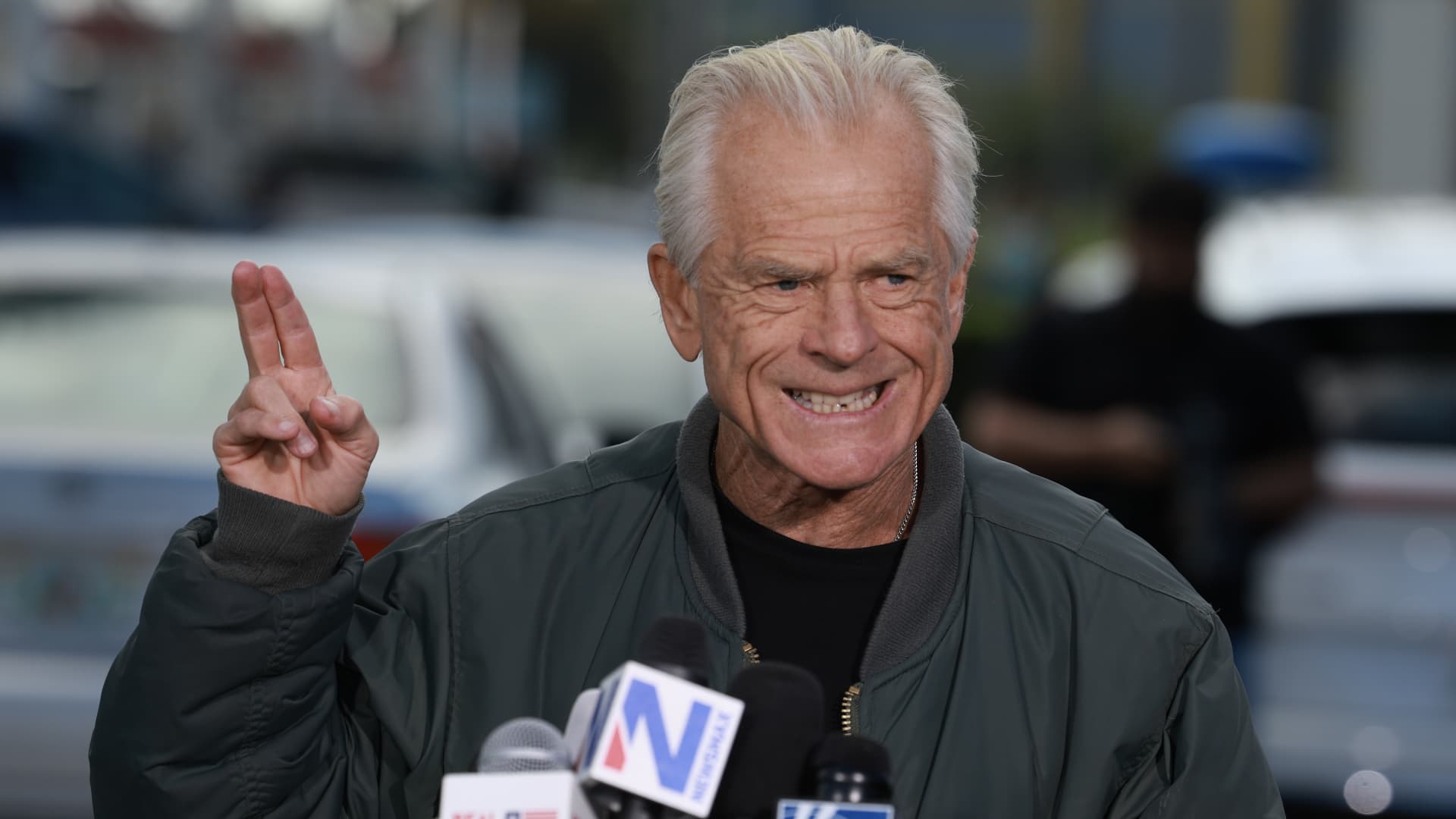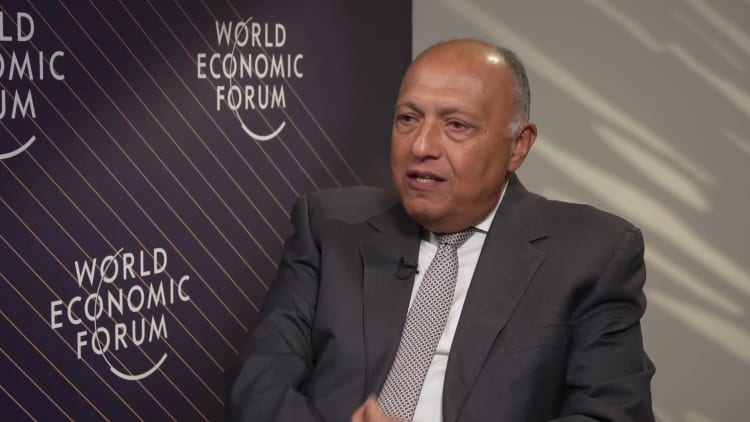President Biden and his team hope to avoid further escalation that would lead to a larger war in the Middle East, advising Israel that its successful defense against Iranian airstrikes represents a major strategic victory that may not require another round of retaliation, US officials said.
The interception of almost all of the more than 300 drones and missiles fired against Israel on Saturday night showed that Israel was ahead in its confrontation with Iran and proved to enemies that it was capable of protecting itself alongside its American allies , which meant it didn’t necessarily have to fire back, the officials said.
It was not immediately clear whether Israeli Prime Minister Benjamin Netanyahu and his government would be willing to leave it at that. Although damage from the attack was relatively minor, the scale of the attacks went well beyond the small-caliber shadow war between Iran and Israel in recent years and crossed a red line by firing weapons from Iranian territory into Israeli territory. Had defenses not been maintained, dozens or hundreds could have been killed.
Emotions ran high among Israeli officials during late-night phone calls with American partners, and the pressure to hit back was correspondingly high. The U.S. officials, who spoke on condition of anonymity to describe sensitive discussions, stressed that the decision ultimately rests with Israel. Israeli fighter jets hit structures in Lebanon controlled by Hezbollah early Sunday after the Iran-backed militia sent two explosive drones into Israel. However, it was not clear how this was related to the Iranian airstrike.
Mr. Biden spoke to Mr. Netanyahu on Saturday after the Iranian attack and reiterated his “iron-clad commitment” to Israel’s security. While the president did not publicly announce his advice, he indicated in a statement released after the call that he wanted to express a desire for restraint.
“I told him that Israel has demonstrated a remarkable ability to defend itself against and repel unprecedented attacks — sending a clear message to its enemies that they cannot effectively threaten Israel’s security,” Mr. Biden said.
He vowed to convene leaders of the Group of Seven major industrial democracies on Sunday to coordinate a “unified diplomatic response,” a sign of his preferred path forward after the attack. The United Nations Security Council will also meet for an emergency meeting on Sunday.
“All in all, @JoeBiden’s message is intended to gently persuade #Israel not to seek further escalation,” Robert Satloff, executive director of the Washington Institute for Near East Policy, wrote on social media.
That will draw criticism of Mr. Biden from conservatives, who quickly went public and called for strong military retaliation against Iran — not just by Israel but also by the United States. “We must act quickly and launch aggressive retaliatory strikes against Iran,” Sen. Marsha Blackburn, Republican of Tennessee, said in a statement posted online.
Speaker Mike Johnson blamed the Biden administration for the attack on Iran in part because it is “undermining Israel and appeasing Iran,” without mentioning that he himself has so far failed to secure a vote on bipartisan Senate security assistance legislation Allow Israel and Ukraine. Rep. Steve Scalise of Louisiana, the House Republican leader, said the House would consider aid to Israel this week “in light of Iran’s unwarranted attack on Israel,” but did not provide details.
The outbreak between Israel and Iran came at a time of great tension between Mr. Biden and Mr. Netanyahu. Just ten days ago, the president threatened in a call to reconsider his support for Israel’s war in Gaza if Mr. Netanyahu did not do more to ease the suffering of civilians in the enclave, taking advantage for the first time since Hamas October 7th attack required American support. led a terrorist attack on Israel.
At the same time the two leaders clashed, Israel had just carried out an airstrike on the Iranian embassy complex in Damascus, Syria, killing seven Iranian officials involved in covert operations. This threatened the escalation that Mr. Biden had long feared. Still, the president made clear his support for Israel’s security was still unwavering and warned Iran not to respond.
American and Israeli officials have spent the last few days coordinating military operations in case Iran intervenes, and Mr. Biden ordered ballistic missile defense planes and destroyers to be sent to the region. Administration officials were delighted with the results Saturday, as U.S. and Israeli forces shot down nearly everything Iran had thrown at Israel, including more than 100 ballistic missiles, a feat that an official said may be unprecedented in military history. Jordan intercepted projectiles crossing its airspace, saying it wanted to ensure its own security.
Although Iran caused little noticeable damage, it signaled after Saturday night’s attack that it was ready to stand down – and clearly hoped to avoid a direct confrontation with the United States. “The matter can be considered closed,” Iran’s mission to the United Nations said in a statement. “However, if the Israeli regime makes another mistake, Iran’s reaction will be much harsher. It is a conflict between Iran and the rogue Israeli regime that the US MUST stay away from!”
Although the number of drones and missiles fired at Israel was exceptionally high, it did not go unnoticed that Iran telegraphed its attack intentions for more than a week, announcing the launch of the drones a few hours before they actually reached Israeli territory, and with sufficient notice Immunity. Some analysts interpreted this to mean that Iran wanted to stage a show of force to save face after killing its officers, but did not want a full-blown war with Israel or the United States.
The situation was reminiscent of when President Donald J. Trump ordered an airstrike in Iraq in 2020 to kill Maj. Gen. Qassim Suleimani, who led the Islamic Revolutionary Guard Corps’ powerful Quds Force. Iran responded by firing missiles at well-defended U.S. bases in Iraq, causing relatively little damage, although about 100 U.S. military personnel were injured. A private message was then sent saying it was done. Mr Trump chose not to retaliate and fears of a spiral of escalation subsided.
In the days before Saturday’s attack on Israel, Mr. Netanyahu warned Tehran not to act, saying: “Whoever hurts us, we hurt them.” But since Israel was not particularly hurt, Mr. Netanyahu may have some leeway, to declare victory and move on. Israeli officials were unclear about their intentions.
“The campaign is not over yet – we must remain vigilant and follow the instructions of the IDF and Homefront Command,” Defense Minister Yoav Gallant said, referring to the Israel Defense Forces. “We have to be prepared for every scenario. Nevertheless, we thwarted the “biggest wave” of the attack, “and successfully.”
The American argument was that another round of military action could be deemed unnecessary since Israel had also successfully eliminated those high-ranking Iranian officers in Damascus two weeks ago without paying any significant price.
Source link
2024-04-14 11:15:29
www.nytimes.com







